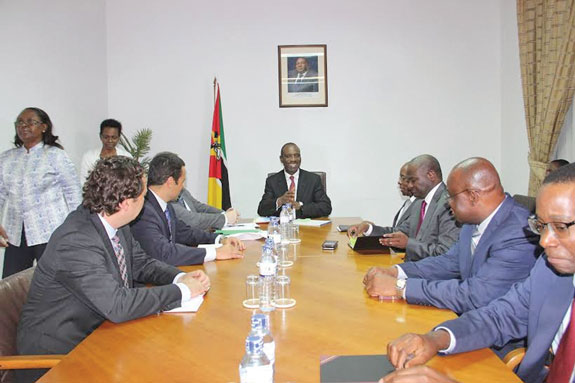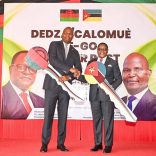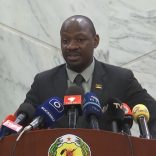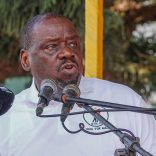Mozambique: One-stop border with Malawi inaugurated - AIM report
Watch: “Constructive” talks, but no new programme yet with IMF – Mozambique

Noticias
Discussions between the Mozambican government and the International Monetary Fund (IMF) earlier this month have not led to any new programme with the IMF.
The IMF team, headed by Michel Lazare, was in Mozambique from 1 to 12 December and, according to an IMF statement issued in Washington on Tuesday, the team “initiated discussions on a new economic program that could be supported by the IMF”.
But, in his final statement, Lazare made it very clear that the IMF wants more concessions from Mozambique before it will consider resuming normal relations, notably on issues of the public sector wages bill and on price subsidies.
“Discussions on a possible IMF arrangement were held in a constructive and cooperative atmosphere”, Lazare said. “While good progress was achieved on a number of technical questions, additional policy adjustments are required to further consolidate macroeconomic and financial stability, and pave the way for a Fund-supported program”.
He demanded that “special attention should be given to containing the expansion of the wage bill and gradually eliminating general price subsidies. Protecting critical social programmes and reinforcing the social safety net should cushion the impact of these measures on the most vulnerable segments of the population”.
“Preserving fiscal sustainability also requires limiting the fiscal risks presented by some large public enterprises”, Lazare added. “Mobilising additional revenue by curtailing tax exemptions and strengthening revenue administration is also essential. In addition, the staff team stressed that a strong commitment to fiscal adjustment is an essential element to facilitate ongoing debt restructuring discussions with creditors”.
There are two main subsidies – one is on wheat flour to keep the price of bread low, and the other is on the diesel used in urban passenger transport, in order to keep fares low. Lazare did not name the public enterprises he had in mind, but the ones mentioned previously as posing particular problems are the electricity distribution company, EDM, and Mozambique Airlines (LAM), now under a cloud because of the accusation that its previous chairperson, Jose Viegas took a bribe of 800,000 US dollars from the Brazilian aircraft manufacturer, Embraer.
The loans of over two billion dollars to the security-related companies Ematum (Mozambique Tuna Company), Proindicus and MAM (Mozambique Asset Management), which were illicitly guaranteed by the previous government, under President Armando Guebuza, did not receive much prominence this time, although it is these loans which led to the IMF suspending its programme with Mozambique in April.
Lazare said “The mission welcomed the agreement reached with the Attorney-General’s Office and the Embassy of Sweden on the detailed terms of reference and the selection of an international company to conduct the ongoing independent audit of EMATUM, Proindicus and MAM. In due course, it will be important to consider strong governance reforms to address findings and recommendations from the audit report.”
Lazare believed there had been “several positive economic developments over the last few months”. In particular, ‘the monetary policy tightening since October 2016 has resulted in a rebalancing of the foreign exchange market, with the metical appreciating by about 8 percent vis-à-vis the US dollar since end-September, following a 40 percent depreciation over the first nine months of the year”
There had also been an improvement in the balance of payments, “helped by a marked drop in imports and somewhat more stable exports, which are supported by higher global coal prices. As a result, despite limited foreign direct investment flows and donor financing, the stock of international reserves has recently started to increase and is expected to cover about 3.5 months of non-megaproject imports at end-2016”.
Nonetheless, Lazare described the outlook as “challenging”. The IMF believed that growth for this year will be only 3.4 per cent (the government’s own estimate is 3.9 per cent – but in either case, that is a long way shot of the seven per cent projected in January).
Inflation, the IMF official said “is still high” while public debt, thanks mainly to Ematum, Proindicus and MAM, had reached “distressed levels”.
A new programme with the IMF is clearly still some months away – Lazare merely said “Discussions on a new IMF-supported program will continue in the first part of 2017”.













Leave a Reply
Be the First to Comment!
You must be logged in to post a comment.
You must be logged in to post a comment.